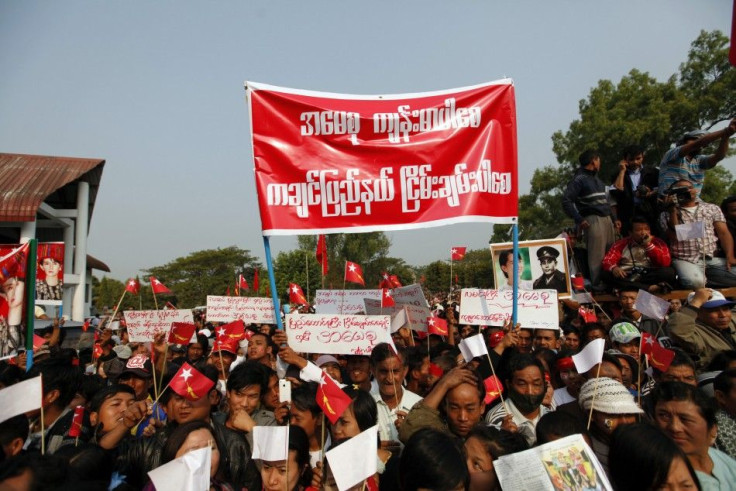Airstrikes Punctuate Progress For Myanmar’s Embattled Northern State Of Kachin

Reform is coming slowly for the Southeast Asian country of Myanmar (aka Burma) -- and for some in the far-flung border regions, the wait has been deadly.
At the northernmost tip of the country is the state of Kachin, where rebels have been at odds with Myanmar’s central government -- now based in the new capital of Naypyidaw -- for more than half a century. The antagonism erupted into conflict most recently in 2011, and Kachin rebel organizations are still engaged in an armed conflict with national troops.
The most prominent of these groups is the Kachin Independence Army, or KIA. Its clashes with the national army have been especially intense in recent weeks.
The dispute is partly rooted in longstanding ethnic conflicts and Kachin desires for autonomy. Tensions have been exacerbated lately by China, which is building mines and dams in Kachin to extract natural resources, an arrangement that yields revenue for Naypiydaw but often displaces embittered communities in Kachin.
Now the military of Myanmar has admitted to the use of airstrikes against the rebels, raising serious concerns over human rights violations in a state that has long borne the brunt of central government repression and human rights abuses.
The good news: Naypiydaw is undergoing some long-awaited changes. Under the leadership of President Thein Sein, the former military regime has liberalized its political system and its economy in recent months. April parliamentary elections marked a milestone with a sweeping victory for the National League for Democracy, the long-suppressed opposition group led by Nobel Peace Prize winner Aung San Suu Kyi.
Suu Kyi and her many supporters are working for greater political transparency, and Myanmar has been the subject of renewed international attention and praise in recent months, including the first visit by an American president.
But a military junta still holds significant power over the government, and the reported airstrikes in Kachin have cast a long shadow over reports of progress.
The military admitted to using airstrikes against the KIA on Wednesday. Two days before, Naypiydaw had denied KIA reports of the strikes from fighter jets and helicopter gunships. The mixed messages evince a split between the administration and military officials, showing that Thein Sein -- a former military commander himself -- is perhaps not as in control as he purports to be, or needs to be in order to effect real change for Myanmar.
The president said as much during a New Year's address on Tuesday, admitting that much-needed reforms cannot be accomplished overnight.
“What the esteemed people and our government need to be conscious of is the gap between the demands of the people and the capacity of our government,” he said, according to Agence France-Presse.
For Kachin, peace is a necessary precondition for progress. As long as the violence continues there, Myanmar as a whole cannot advance very far in its ongoing pursuit of stability and prosperity.
© Copyright IBTimes 2024. All rights reserved.






















